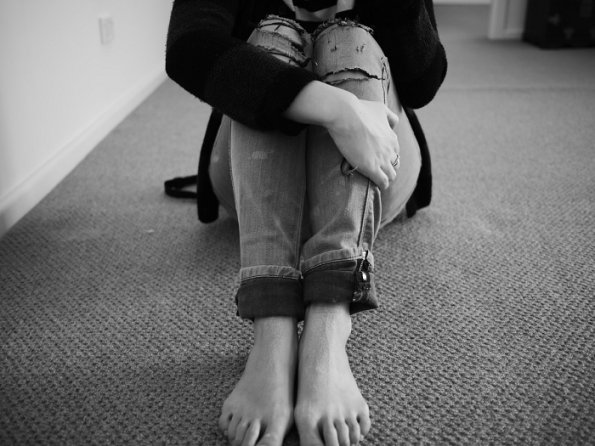Table of Contents
Introduction to Family Involvement in Teen Rehab
Teen rehabilitation programs play a critical role in helping young people recover from substance abuse and mental health disorders. These programs provide structured, evidence-based treatments designed to address the complex needs of adolescents facing these challenges. However, the true success of these initiatives often relies heavily on the support and involvement of the family. A family’s commitment to being an integral part of the rehab process can significantly enhance the outcomes for a drug rehab teenager. This involvement encompasses emotional support, participation in therapy sessions, and efforts to create a supportive home environment.
The role of family in teen rehab is multifaceted and extends beyond merely providing emotional support. Families are encouraged to engage actively in therapeutic programs and work towards enhancing communication skills. As per experts and caregivers, this collaborative approach not only supports the therapeutic goals but also ensures the long-term success of the rehabilitation process. Active family involvement helps to reinforce positive behaviors and guard against potential relapses, creating a reliable support system that aids in sustainable recovery.

Emotional Support and Understanding
Providing emotional support and understanding is fundamental to aiding a teen’s recovery journey. When families are empathetic, teens suffer less stress and anxiety, which bolsters the rehabilitation process. Creating a nurturing space where teens feel understood encourages them to stay dedicated to their treatment plans. Additionally, emotional bonds with family members provide a sense of security that empowers teens to face the challenges of recovery. As families gather to support their loved ones, they strengthen the emotional foundation necessary for the healing process, ensuring a supportive backdrop that is vital during and after rehab.
Building a Supportive Environment
A key aspect of successful rehabilitation involves ensuring that the home environment is safe and conducive to recovery. A supportive home is one where teens feel motivated to continue following the skills and boundaries set during rehabilitation. Families can contribute to this by establishing clear rules and routines that align with the treatment center’s objectives. This mitigation of chaos and uncertainty helps create a stable environment unmarred by the factors that initially contributed to substance abuse. Proactively eliminating triggers and temptations and maintaining a consistent routine work as practical strategies for fostering an environment where teens can stay on course with their recovery initiatives.
Effective Communication Strategies
Communication plays a fundamental role in the success of a rehab journey. Families that foster open dialogue create an environment of trust. Such an atmosphere encourages teens to express their thoughts and emotions freely without the fear of judgment. Implementing positive communication habits can help resolve conflicts without escalating them, offering constructive solutions instead of blame or punishment. Adopting active listening and validating feelings build relationships where teens feel valued, which is crucial for instilling the confidence they often lose during periods of substance abuse or mental health struggles. A family that listens can dramatically influence positive change, ensuring teens remain focused on their recovery path.
Training and Education for Families
Equipping families with the necessary knowledge and skills to support a teen’s rehab process is pivotal. Educational programs and workshops empower families by offering insights into the nature of addiction and its treatment. These programs teach constructive coping mechanisms and conflict resolution strategies and inform family members about tackling specific emotional challenges involved in recovery. Informed families are better able to make thoughtful decisions, provide effective support, and engage more actively in the teen’s healing process. Educational resources from organizations and mental health professionals provide a foundation for families to respond accurately and helpfully to the dynamic situations that arise during and after rehab.
Tangible Benefits of Family Involvement
Family involvement in teen rehab has consistently been associated with improved outcomes. Research indicates that teens whose families participate actively in the rehab process experience faster recoveries and maintain longer sobriety periods. Among the real-life success stories are those that highlight the transformative power family engagement can have in the recovery journey. As noted in a recent news report, the collective effort of families working in harmony with rehabilitation services showcases the profound impact of these partnerships. Such testimonials and data illustrate how a supportive family network can reinforce therapeutic measures, complement clinical efforts, and lead to a smoother, more effective recovery process.
Family Therapy and Its Impact
Incorporating family therapy into rehabilitation programs provides a structured environment in which families can learn how to support their teens more effectively. These sessions offer leaders in family dynamics, guided by professional therapists who facilitate healthier interactions. Family therapy helps all involved parties understand the underlying issues affecting their relationships, advancing communication and fostering a shared healing experience. An insightful analysis by Psychology Today emphasizes the benefits such sessions bring by mending strained bonds and providing tools to navigate the complexities of supporting a loved one’s recovery journey. Through collaborative discussions, family therapy aims to nurture empathy, establish realistic expectations, and empower everyone to contribute actively to the healing process.




